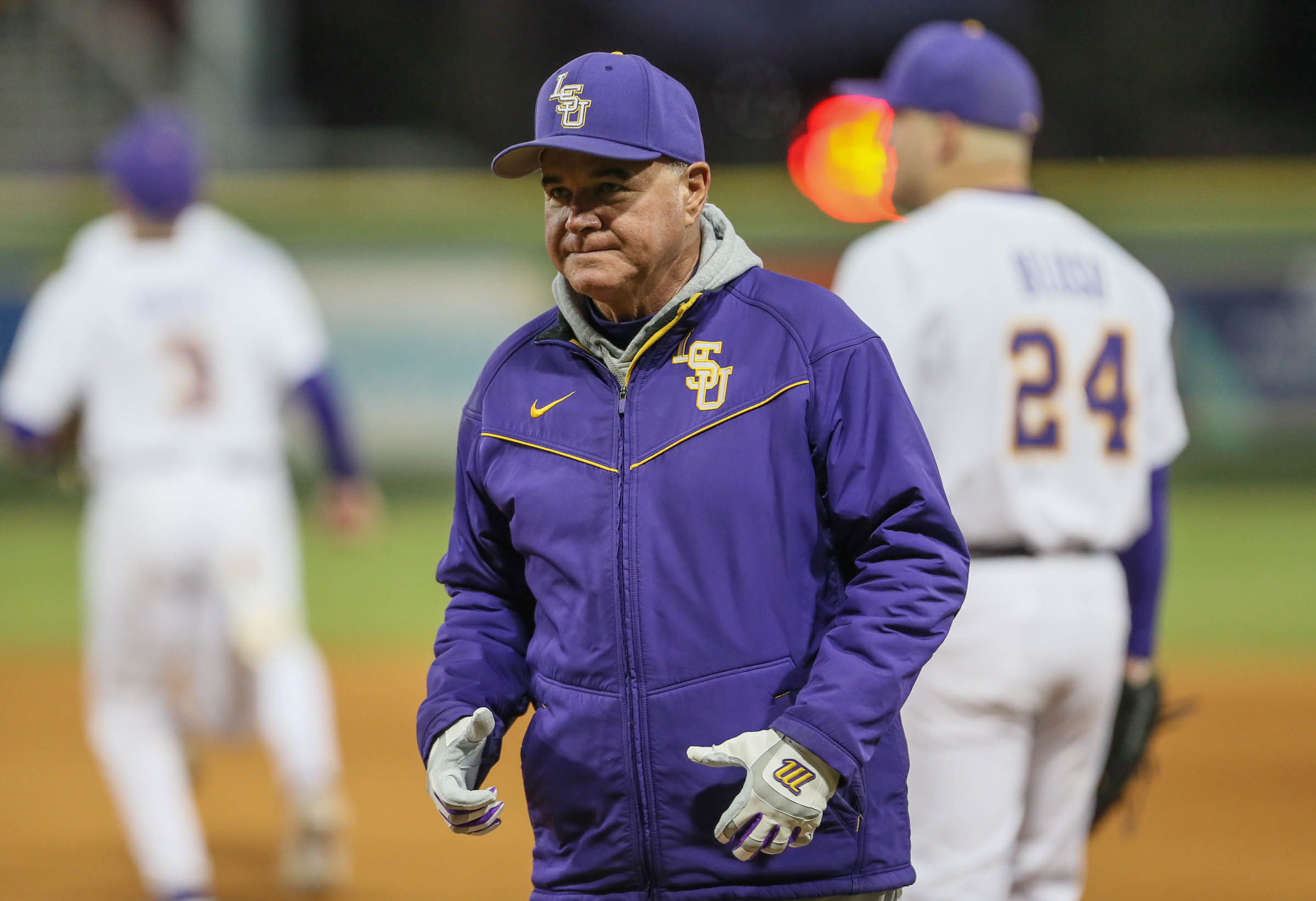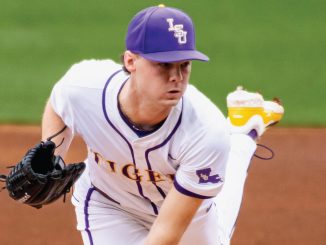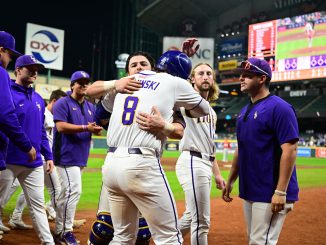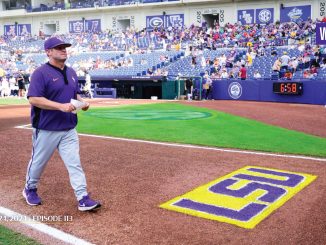
“It almost feels like the Twilight Zone, doesn’t it?” LSU baseball coach Paul Mainieri said.
Well, yes it does, Paul.
We watched you conduct a Zoom media videoconference Thursday afternoon from your bedroom.
“It’s so surreal,” he added.
No doubt it. “Coronavirus pandemic” and “social distancing” are now daily, unwelcomed new phrases in our lexicon.
We are all prisoners in our own homes, most of us trying to do our part to “flatten the curve” to slow the spread of the most deadly virus in our lifetime.
So, like Mainieri, in order to not get to the point where we don’t even sometimes know the current day of the week, we venture outside into bright sunshine and blue skies.
“You think life is normal,” Mainieri said, “and then you come in, put on the news again, you hear everything that’s going on and you realize it’s April and you’re not on the baseball field.”
Which is a shock to the seasonal time clock of the 62-year Mainieri, who was raised as the son of a college baseball coach.
“Since I was five years old, I spent probably every day of April on a baseball field,” Mainieri said, “whether I was in the dugout with my Dad, or playing in high school, college or the minor leagues, or coaching high school and college.”
After the coronavirus shut down his 17-game old 2020 season as well as the rest of all sports in the U.S., he hasn’t looked at a calendar.
Therefore, when he was informed this would have been the weekend that defending national champion Vanderbilt was scheduled for a three-game SEC series in Alex Box Stadium, you could hear a tinge of energy in his voice.
“I’d heard two months ago all the games were sold-out to the hilt and people were playing $200 for tickets on StubHub,” Mainieri said. “It was going to be exciting having the defending national champions come in. Alex Box (Stadium) was going to be hopping. How can you not be excited about that stuff?”
Then, Mainieri’s tone took a dip.
“And the rug got pulled out from under us,” he said. “I haven’t spent a lot of time thinking about what has been lost from this season as much as I have been spending time preparing for next season and letting that be my dominant thinking.
“If I keep thinking about what we lost, it would put me into a depressive state, and I didn’t want to be that way about losing a baseball season. I’m depressed enough about what is going on the world, believe me.”
So, Mainieri has passed his days and nights in several ways, a mixture of killing time and positive production.
“I’ve watched about every rerun of every movie I’d watched in my life,” he said. “I’ve watched old major league games on the MLB channel. I got to watch Bucky Dent (of the New York Yankees) hit his 3-run homer (in a 1978 American League East Division tiebreaker game) against the Red Sox, which happened when I was a senior in college.
“He was my favorite player, my idol. He played junior college ball for my Dad. It was a thrilling thing to watch that game all over again.”
Mainieri also has checked in with LSU players scattered to their homes across the land (“I Facetimed with Zack Mathis in California while he was out in a field throwing with a friend,” he said), incessantly reviewed his 2021 depth chart (“I’ve stared at my computer screen so much I’ve almost gone blind,” he said) and worked on his midweek non-conference game scheduling for 2022 (“Our 2021 non-conference schedule has been done for quite a while,” he said).
While Mainieri realized “there’s a lot more things going on in the world than college baseball – people are losing their lives, their retirements, their jobs,” he said – he fears the sport will take a hit if there is no college football season in 2020.
Mainieri understands LSU baseball is one of the few college programs that makes a profit and is self-sufficient, unlike more than half the 300 Division 1 baseball-playing schools that don’t even award the maximum 11.7 scholarships allowed.
“If college football gets canceled, then all of that revenue doesn’t come in,” Mainieri said. “Now, the NCAA basketball tournament took a hit (being cancelled) and the (annual) disbursement to NCAA member schools is less (reduced from a collective $600 million to $225 million) than people planned on.”
Another minefield for college baseball is how this week’s well-intended NCAA ruling returning a year of eligibility to all spring athletes whose seasons were cancelled will fit with major league baseball’s indecisive decree of not knowing when it will stage a draft and whether it will be five or 10 rounds instead of the usual 40 rounds.
For the top-level programs such as LSU, which usually has five or more players (mostly juniors) taken annually in the MLB draft, the uncertainly of the number of rounds in the to-be-announced draft is a roster headache.
“The difference between five rounds and 10 rounds is very significant,” Mainieri said. “I went into this year with the idea seven or eight of our underclassmen would be drafted, sign and not be with us the following year.
“Now, if there is just a five-round draft, all of a sudden you have five or six guys back you didn’t anticipate returning. Then, you have a signing class of 17 in which normally you lose three or five to the draft, but this year it could be one or two (if there is a five-round draft).
“I’ve got kids (high school recruits) that have signed and are planning to come to LSU. What do you do? Throw your juniors to the curb because they weren’t drafted?
“It’s nobody’s fault. You can look at it like, `Well, you shouldn’t have over-recruited.’ You have to over-recruit in the SEC because the players are so good, you’re going to end up losing so many of them (annually in the draft).”
Mainieri, with help from the SEC office and other coaches at major programs, is hoping to persuade the NCAA as a one-time gesture to add two to three scholarships for 2021 and raise the 27-man roster limit of players receiving aid.
“I’m worried for the future of baseball programs all around the country,” Mainieri said. “I don’t want to speculate because it’s being a pessimist and I don’t want to be that way. I’m hoping people will find a way and programs will be able to survive.”




Be the first to comment